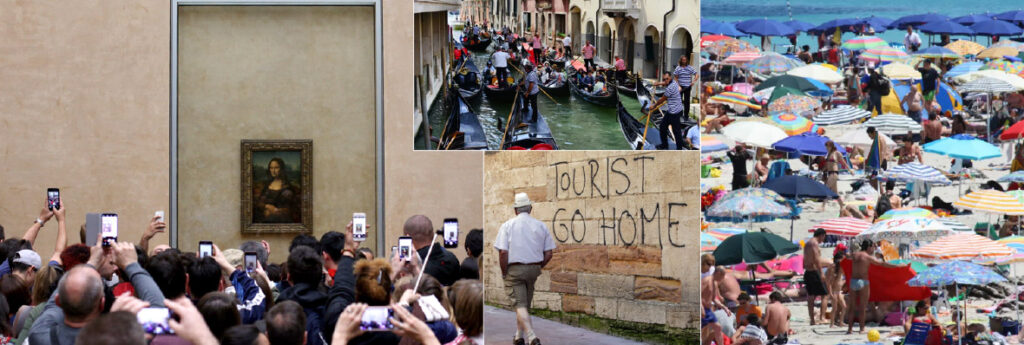Be careful what you wish for. In those seemingly long-ago days before the pandemic, over-tourism was one of the travel industry’s most pressing problems. Now, it’s the opposite.
Indeed, who doesn’t recall images of protests in Europe from residents fed up with sharing their space with never-ending hordes of visitors; and news stories of local councils defiantly limiting the number of tourists they were prepared to welcome, or even charging them to be there? Now, photos depict empty airports.
The latest United Nations World Tourism Organization (UNWTO) analysis suggests that global tourism arrivals may decline by as much as 80 percent this year because of the COVID-19 pandemic – thereby placing “millions of livelihoods at risk,” but also threatening to roll back progress made in advancing sustainable development goals as stakeholders (understandably) narrowly focus on recouping losses and rebuilding businesses at all costs.
But if we step out of the moment, is a return to unmitigated tourism a good thing?
Years ago, I can recall cursing rude Europeans who trudged through my photo ops with purposeful indifference, which was more annoying when it meant wasting film rather than simply having to line up another digital snap.
Yet, I recognized such admittedly minor encounters as canary-in-the-coalmine incidents that illustrated that I wasn’t particularly sensitive to the disruption that I – and millions of other travellers – were causing to fed-up locals who were continually required to dodge countless human obstacles in simple pursuit of daily routines. How many times must someone pause their progress each day to accommodate an amateur photographer endlessly angling for the ideal image?
Even then, the natives were getting restless.
Subsequently, and more significantly, the pollution, over-consumption and a general lack of sustainability that either directly or indirectly accompanies tourism has only increased.
And it’s a Catch 22 scenario that is not lost on many of those doing the travelling as they seek out under-the-radar rather than favourite destinations and forgo the best weather for off-peak times, amongst other concessions – all in a bid to avoid the very pitfalls that tourism creates.
After all, a beautiful beach isn’t as alluring when oily sunbathers are packed in like sardines and it’s littered with trash, and who wants to queue for hours to get into the Louvre or the Vatican Museum, or be subject to time limits when there?
Yet, the UNWTO says 100-120 million tourism jobs may be lost due to the global halt of tourism this year. And with many tourism organizations not expecting a return to pre-COVID levels of business for several years, those jobs may not be coming back any time soon.
One wonders if the former protesters are now remembering the crowds fondly.

It’s a similar dilemma to the pandemic’s health vs. economy debate. How far and how long before the cure fatally debilitates the patient? Or put another way, what risk or trade-off will one endure in the name of the bigger picture?
Of course, the pandemic may make the debate moot for awhile as cautious or restricted travellers stay home, and new travel measures such as reduced capacity and social distancing change travel’s natural dynamic.
Before COVID, tourism growth had continued unabated for 10 consecutive years and doubled since 1998 – a run of success that prompted former UNWTO secretary general Taleb Rifai to warn in 2017: “Growth is not the enemy; numbers are not the enemy; the key is to manage the growth sustainably, responsibly and intelligently and use the power of growth to our advantage.
“We cannot continue to build five-star hotels in three-star communities,”he added. “Jobs and charity are not enough – we need to diversify visitors’ activities, reduce seasonality and raise awareness of less busy destinations.”
His words are just as relevant today as tourism looks to take off again post (and, in fact, during) COVID.
At the same time, behavioural modification goes both ways: as one prominent travel exec recently stated, travellers shouldn’t leave their morals at home. You wouldn’t dump your garbage in the street at home, he suggested, so why book and overlook a cruise line, for example, that empties its trash into the ocean, just because you’re on holiday?
As such, more due diligence, and conscience, will be needed in travel’s new normal, he believes.
Indeed, during this unexpected and unwelcome lull, as travellers and travel enablers consider what the future of travel will look like, that sounds like something to wish for.

